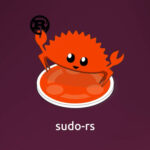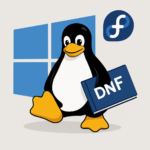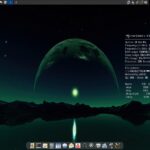Forget CCleaner -- BleachBit 5.0 is here to remove junk, broken files and bloat from Windows 10/11 and Linux

Open-source system-cleaning tool BleachBit 5.0 has been released for Windows and Linux users. The tool, which is used to clean up drive space and shred sensitive data, provides a way for users to remove unwanted and unused data from their machines.
Version 5.0 comes with the promise of new and improved cleaners alongside numerous other updates and security fixes.
Microsoft wants you to ditch Windows 10 for Windows 11, but End Of 10 thinks Linux is a better option

With Microsoft ending support for Windows 10 in just a few short months, the company is busy trying to get users to either upgrade directly to Windows 11, or purchase a new system -- ideally a Copilot+ PC.
It is obvious that Microsoft would prefer Windows 10 users to move to Windows 11, but this is far from being the only option available. A team of Linux enthusiasts has come together in the End Of 10 project, the aim of which is to promote Linux as a logical replacement for unsupported Windows 10.
System76 Serval WS Linux laptop gets NVIDIA RTX 5070 Ti and 240Hz display

System76 just pulled the curtain back on its newest Linux laptop, and this one’s an absolute beast! The company’s Serval WS is getting a monstrous 2025 refresh, and it’s clear the company isn’t messing around this time.
The display features a 2560x1600 resolution packed into a 16:10 panel that refreshes at 240Hz. And the graphics are handled by NVIDIA’s new RTX 5070 Ti. It’s built to handle AAA games, AI workloads, and GPU-accelerated tasks without breaking a sweat.
Ubuntu Linux swapping classic sudo for Rust-powered sudo-rs

Canonical is making a huge change in Ubuntu that longtime Linux users might not expect (or like). You see, beginning with the upcoming Ubuntu 25.10, the popular Linux distribution will begin the process of ditching the classic sudo tool in favor of a modern reimagining called sudo-rs. This change is more than a simple code swap -- it’s a sea change in how privilege escalation is handled on Linux, with a clear focus on security and long-term sustainability.
So what exactly is sudo-rs? Well, as the name implies, it’s a new implementation of the familiar sudo command, but this version is written entirely in Rust -- a programming language known for its strict memory safety and reliability. If you’re worried about compatibility, don’t panic; sudo-rs is designed as a drop-in replacement for the original. For most users, it will just work.
Microsoft finally makes Fedora an official Windows Subsystem for Linux (WSL) distribution

Well, it has finally happened. Fedora Linux is now officially available as a Windows Subsystem for Linux (WSL) distribution! That’s right, folks, following prior testing, you can now run Fedora 42 natively inside Windows using WSL. As someone who considers Fedora to be my favorite Linux distribution, this is a pretty exciting development.
Installing it is simple enough. Just open up a terminal and type wsl --install FedoraLinux-42 to get started. After that, launch it with wsl -d FedoraLinux-42 and set your username. No password is required by default, and you’ll automatically be part of the wheel group, meaning you can use sudo right out of the gate.
Ditch Microsoft Windows for ALT Workstation 11: A Russian Linux distro with a modern GNOME desktop

There’s no shortage of Linux distributions trying to take on Windows nowadays, but ALT Workstation 11 actually makes a strong case for doing just that. Developed in Russia and now based on the stable “Salvia” branch of Platform 11, this fresh release swaps out the MATE desktop in favor of a full GNOME experience.
If you’ve been frustrated with Windows 11’s confusing UI, forced Microsoft accounts, or bloated system updates, ALT Workstation 11 offers a refreshing change. The operating system doesn’t just give you a usable desktop -- it gives you control. On first boot, a welcome tool called “ALT Tour” lets you pick your interface style, from a clean GNOME layout to a more traditional “Panel Mode” that echoes the look of older desktops. You can also pick your theme, choose accent colors, and tweak window button placement without any hacks or extensions.
openSUSE Leap 16 Beta is here with Wayland and a modern Linux foundation

Exciting news, folks -- the openSUSE developers have announced that Leap 16.0 Beta is now available for testing (download here). It’s based on SUSE Linux Enterprise 16 and SUSE Linux Framework One (previously known as ALP). This version keeps the familiar openSUSE structure while adopting a more modern foundation.
A release candidate is expected in July, and the final version is scheduled for October. This beta should offer a clear look at what the community can expect when Leap 16.0 officially launches later this year. Notably, the Agama installer is now the default, replacing the older YaST-based setup.
AdGuard brings full command line ad-blocking to Linux with stable v1.0 release

Back when the nightly version of AdGuard for Linux first surfaced, I reported on its potential and how it aimed to bring proper ad-blocking to the command line. Now, with version 1.0 officially released today, AdGuard for Linux is no longer experimental -- it’s a complete and stable tool aimed squarely at users who want powerful, terminal-based protection.
Unlike the Windows and macOS versions that offer full graphical interfaces, AdGuard for Linux is built entirely around the command line. It brings many of the same core features, just in a more lightweight, scriptable format that should appeal to those who live in the terminal.
AlmaLinux 9.6 Beta released: Here’s what Linux users need to know

AlmaLinux 9.6 Beta has officially been released (download here), giving Linux fans and enterprise users an early peek at what’s coming next from this Red Hat-compatible distribution.
The new beta is codenamed “Sage Margay” and is available right now for x86_64, aarch64, ppc64le, and s390x systems. Keep in mind, this is a pre-release build, so don’t go installing it on anything mission-critical unless you’re ready for things to break.
Kali Linux users warned that updates are likely to fail for a few days

Showing that it is not just Windows 11 that has issues with updates, Offensive Security has issued a warning that Kali Linux updates are likely to fail “in the coming days”.
The Linux distro has proved an important tool in penetration testing, acting as a valuable security tool for many users. The team behind Kali Linux says that “pretty much every Kali system out there will fail to update”, and it bears full responsibility: “This is not only you, this is for everyone, and this is entirely our fault”. But there is a solution.
Install 4MLinux 48.0 to breathe new life into your old computer

Let’s be honest, y’all -- it is pretty easy to feel overwhelmed by everything going on these days. Bad news seems to hit from every direction, leaving many people feeling helpless or anxious. But believe it or not, there is a simple, satisfying way to take back a little bit of control -- by breathing new life into an old computer with a refreshing Linux distribution such as 4MLinux.
You see, the new 4MLinux 48.0 series has officially been declared stable (download here), and it brings a whole lot to the table for such a lightweight operating system. Whether you want to write documents in LibreOffice 25.2 or GNOME Office (featuring AbiWord 3.0.5, GIMP 2.10.38, and Gnumeric 1.12.59), this little distro has you covered. Browsing the web is easy too, with both Firefox 137.0 and Chrome 135.0 ready to roll. Thunderbird 128.9 is there if you still prefer handling email the old-fashioned way.
Hackers can now bypass Linux security thanks to terrifying new Curing rootkit

Most Linux users assume their security tools will catch bad actors before damage is done -- but sadly, new research suggests that confidence may be misplaced. You see, ARMO, the company behind Kubescape, has uncovered what could be one of the biggest blind spots in Linux security today. The company has released a working rootkit called “Curing” that uses io_uring, a feature built into the Linux kernel, to stealthily perform malicious activities without being caught by many of the detection solutions currently on the market.
At the heart of the issue is the heavy reliance on monitoring system calls, which has become the go-to method for many cybersecurity vendors. The problem? Attackers can completely sidestep these monitored calls by leaning on io_uring instead. This clever method could let bad actors quietly make network connections or tamper with files without triggering the usual alarms.
No Linux for old men -- ArcoLinux reaches the end of the line

The ArcoLinux project is winding down after eight years because its project lead is beginning to feel his age.
Announcing the move in a blog post, Erik Dubois says the ArcoLinux community will discontinue its distribution and related projects.
OpenMandriva Lx 6.0 brings KDE Plasma 6 and Proton for running Windows games on Linux

The folks behind OpenMandriva have officially released version 6.0 of their Linux distribution. This is the fixed-point “Rock” release, and not the rolling edition, so it is all about stability rather than chasing the latest experimental packages.
KDE Plasma 6 is the star of the show here, serving as the default desktop environment. Users can choose between X11 or Wayland sessions, but there’s a catch. If you plan to run OpenMandriva Lx 6.0 in VirtualBox, X11 is strongly recommended. The team warns about problems with Wayland on VirtualBox’s emulated GPU, though things work fine on real hardware or in QEMU with KVM. For VirtualBox, don’t forget to set VMSVGA to avoid boot issues.
Install Linux on your old PC to save it from the landfill this Earth Day

Earth Day is tomorrow, and it is a time to reflect on how we treat the planet we all share (until Elon Musk colonizes Mars, at least). While some people mark the day by picking up trash or planting a tree, there’s another simple yet powerful way to help the environment that you might not have considered -- install Linux on your aging computer instead of tossing it in the trash!
Old computers don’t have to die. In fact, most of them still have plenty of life left in them -- if you’re willing to ditch bloated operating systems that no longer support them. That’s where Linux comes in. Unlike Windows 11, which demands modern processors and fairly high-end specs just to boot, many Linux distributions run smoothly on older hardware. Whether it’s a decade-old laptop collecting dust or a desktop with a failed Windows installation, Linux can breathe new life into machines that would otherwise end up in landfills.
Recent Headlines
Most Commented Stories
© 1998-2025 BetaNews, Inc. All Rights Reserved. About Us - Privacy Policy - Cookie Policy - Sitemap.